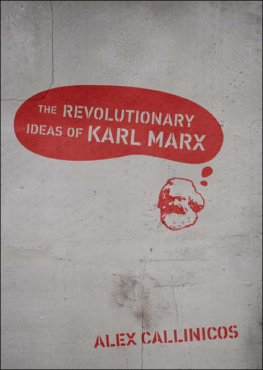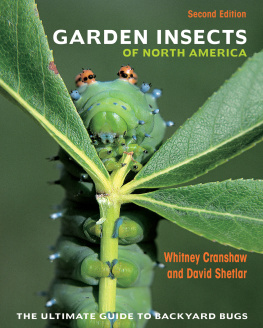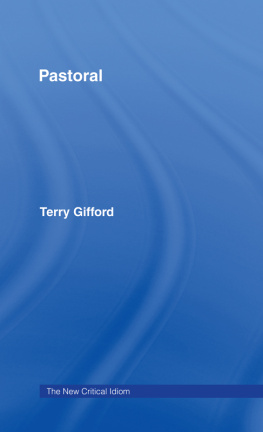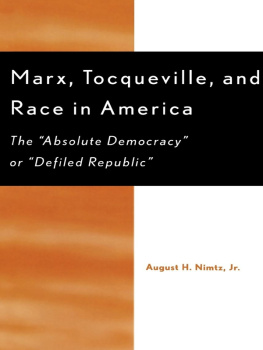Leo Marx - Machine in the Garden: Technology and the Pastoral Ideal in America
Here you can read online Leo Marx - Machine in the Garden: Technology and the Pastoral Ideal in America full text of the book (entire story) in english for free. Download pdf and epub, get meaning, cover and reviews about this ebook. year: 2000, publisher: Oxford University Press, USA, genre: Science. Description of the work, (preface) as well as reviews are available. Best literature library LitArk.com created for fans of good reading and offers a wide selection of genres:
Romance novel
Science fiction
Adventure
Detective
Science
History
Home and family
Prose
Art
Politics
Computer
Non-fiction
Religion
Business
Children
Humor
Choose a favorite category and find really read worthwhile books. Enjoy immersion in the world of imagination, feel the emotions of the characters or learn something new for yourself, make an fascinating discovery.

Machine in the Garden: Technology and the Pastoral Ideal in America: summary, description and annotation
We offer to read an annotation, description, summary or preface (depends on what the author of the book "Machine in the Garden: Technology and the Pastoral Ideal in America" wrote himself). If you haven't found the necessary information about the book — write in the comments, we will try to find it.
Leo Marx: author's other books
Who wrote Machine in the Garden: Technology and the Pastoral Ideal in America? Find out the surname, the name of the author of the book and a list of all author's works by series.
Machine in the Garden: Technology and the Pastoral Ideal in America — read online for free the complete book (whole text) full work
Below is the text of the book, divided by pages. System saving the place of the last page read, allows you to conveniently read the book "Machine in the Garden: Technology and the Pastoral Ideal in America" online for free, without having to search again every time where you left off. Put a bookmark, and you can go to the page where you finished reading at any time.
Font size:
Interval:
Bookmark:
THE MACHINE in the Garden

Courtesy of the Standard Oil Company of New Jersey.
TECHNOLOGY AND THE PASTORAL IDEAL IN AMERICA
Leo Marx


Oxford New York Athens Auckland Bangkok Bogot Buenos Aires Calcutta Cape Town Chennai Dar es Salaam Delhi Florence Hong Kong Istanbul Karachi Kuala Lumpur Madrid Melbourne Mexico City Mumbai Nairobi Paris So Paulo Singapore Taipei Tokyo Toronto Warsaw
and associated companies in
Berlin Ibadan
Copyright 1964, 2000 by Oxford University Press
First published by Oxford University Press,
New York, 1964
198 Madison Avenue, New York, New York 10016
First issued as an Oxford University Press paperback, 1967
Oxford is a registered trademark of Oxford University Press
All rights reserved.
Oxford University Press.
LIBRARY OF CONGRESS CATALOGING-IN-PUBLICATION DATA
Marx, Leo, 1919
The machine in the garden: technology and the pastoral ideal in America
/ Leo Marx
p. cm.
Includes bibliographic references and index.
ISBN:978-0-19-513351-6
1. United StatesCivilization. 2. NatureSocial aspectsUnited States.
3. TechnologySocial aspectsUnited States. I. Title.
E169.1.M352000
973dc2199-34697
For JANE
more than ever
THE MACHINE in the Garden
Sleepy Hollow, 1844
I mention this peaceful spot with all possible laud; for it is in such little retired valleys that population, manners, and customs, remain fixed; while the great torrent of migration and improvement, which is making such incessant change in other parts of this restless country, sweeps by them unobserved. They are little nooks of still water which border a rapid stream
Washington Irving, The Legend of Sleepy Hollow, 1820
THE pastoral ideal has been used to define the meaning of America ever since the age of discovery, and it has not yet lost its hold upon the native imagination. The reason is clear enough. The ruling motive of the good shepherd, leading figure of the classic, Virgilian mode, was to withdraw from the great world and begin a new life in a fresh, green landscape. And now here was a virgin continent! Inevitably the European mind was dazzled by the prospect. With an unspoiled hemisphere in view it seemed that mankind actually might realize what had been thought a poetic fantasy. Soon the dream of a retreat to an oasis of harmony and joy was removed from its traditional literary context. It was embodied in various utopian schemes for making America the site of a new beginning for Western society. In both forms one literary and the other in essence political the ideal has figured in the American view of life which is, in the widest sense, the subject of this book.
The notion that pastoralism remains a significant force in American life calls for an explanation. At first thought the relevance of the ancient ideal to our concerns in the second half of the twentieth century is bound to seem obscure. What possible bearing can the urge to idealize a simple, rural environment have upon the lives men lead in an intricately organized, urban, industrial, nuclear-armed society? The answer to this central question must start with the distinction between two kinds of pastoralism one that is popular and sentimental, the other imaginative and complex.
The first, or sentimental kind is difficult to define or even to locate because it is an expression less of thought than of feeling. It is widely diffused in our culture, insinuating itself into many kinds of behavior. An obvious example is the current flight from the city. An inchoate longing for a more natural environment enters into the contemptuous attitude that many Americans adopt toward urban life (with the result that we neglect our cities and desert them for the suburbs). Wherever people turn away from the hard social and technological realities this obscure sentiment is likely to be at work. We see it in our politics, in the localism invoked to oppose an adequate national system of education, in the power of the farm bloc in Congress, in the special economic favor shown to farming through government subsidies, and in state electoral systems that allow the rural population to retain a share of political power grossly out of proportion to its size. It manifests itself in our leisure-time activities, in the piety toward the out-of-doors expressed in the wilderness cult, and in our devotion to camping, hunting, fishing, picnicking, gardening, and so on. But there is no need to multiply examples; anyone who knows America today will think of many others.
Nowhere is the ill-defined feeling for nature more influential than in the realm of imaginative expression. There can be little doubt that it affects the nations taste in serious literature, reinforcing the legitimate respect enjoyed by such writers as Mark Twain, Ernest Hemingway, and Robert Frost. But on the lower plane of our collective fantasy life the power of this sentiment is even more obvious. The mass media cater to a mawkish taste for retreat into the primitive or rural felicity exemplified by TV westerns and Norman Rockwell magazine covers. Perhaps the most convincing testimony to the continuing appeal of the bucolic is supplied by advertising copywriters; a favorite strategy, validated by marketing research, assumes that Americans are most likely to buy the cigarettes, beer, and automobiles they can associate with a rustic setting.
No single motive can account for these disparate phenomena. Yet each does express something of the yearning for a simpler, more harmonious style of life, an existence closer to nature, that is the psychic root of all pastoralism genuine and spurious. That such desires are not peculiar to Americans goes without saying; but our experience as a nation unquestionably has invested them with peculiar intensity. The soft veil of nostalgia that hangs over our urbanized landscape is largely a vestige of the once dominant image of an undefiled, green republic, a quiet land of forests, villages, and farms dedicated to the pursuit of happiness.
In recent years several discerning, politically liberal historians of American thought have traced the gradual attenuation, in our public life, of the ideas once embodied in this cherished image. I am thinking especially of the work of Richard Hofstadter, Marvin Meyers, and Henry Nash Smith. These writers have not been concerned, to
When seen by critics of mass culture, moreover, the popular kind of American pastoralism assumes an equally pernicious, if slightly different, aspect. Then it looks like a native variant of that international form of primitivism to which Ortega y Gasset, among others, began calling attention years ago. In The Revolt of the Masses (1930), Ortega uses the term to describe the outlook of a new kind of man, a Naturmensch rising up in the midst of a civilised world:
The world is a civilised one, its inhabitant is not: he does not see the civilisation of the world around him, but he uses it as if it were a natural force. The new man wants his motor-car, and enjoys it, but he believes that it is the spontaneous fruit of an Edenic tree. In the depths of his soul he is unaware of the artificial, almost incredible, character of civilisation, and does not extend his enthusiasm for the instruments to the principles which make them possible.
Next pageFont size:
Interval:
Bookmark:
Similar books «Machine in the Garden: Technology and the Pastoral Ideal in America»
Look at similar books to Machine in the Garden: Technology and the Pastoral Ideal in America. We have selected literature similar in name and meaning in the hope of providing readers with more options to find new, interesting, not yet read works.
Discussion, reviews of the book Machine in the Garden: Technology and the Pastoral Ideal in America and just readers' own opinions. Leave your comments, write what you think about the work, its meaning or the main characters. Specify what exactly you liked and what you didn't like, and why you think so.








